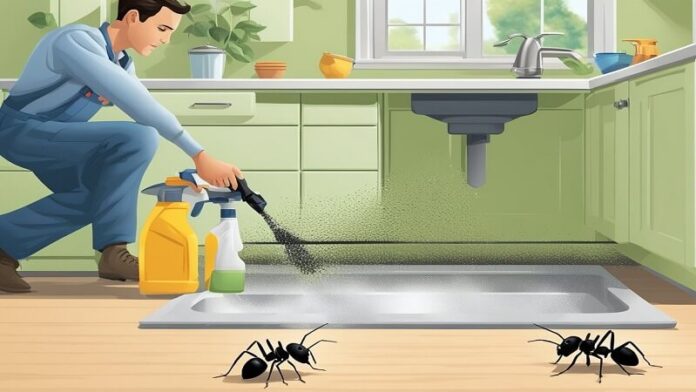Pest control is a critical aspect of maintaining a healthy and comfortable living environment. Whether dealing with ants, rodents, or termites, effective pest control strategies can prevent damage to property and reduce health risks. Proper management includes not only eliminating existing pests but also taking preventative measures to keep them from returning.
Understanding common pests and their behaviors can make tackling an infestation more manageable. For example, ants often seek food sources, while rats can pose more severe threats by gnawing on wires and carrying diseases. Tailoring solutions to specific pests ensures more effective control and longer-lasting results.
For homeowners and businesses alike, investing in regular pest control services can save time and money in the long run. Cost-effective prevention and control methods can help maintain a pest-free environment, offering peace of mind and protecting both property and health.
Understanding Pest Control
Effective pest control involves various techniques and services to address and eliminate pests in both residential and commercial settings. Evaluating services and considering costs are crucial for ensuring a pest-free environment.
Types and Importance of Pest Control
Pest control can target various unwanted creatures, including rodents, insects, and other common household pests. Identifying the specific pest problem is essential. Treatment options vary widely, from basic sprays to integrated pest management plans.
Pest control includes preventive measures, chemical treatments, and biological controls. Each method has advantages and should be selected based on the specific pest issue. Licensed technicians play a key role in executing effective treatment plans.
Evaluating Pest Control Services
Choosing the right pest control service involves several factors. Initial inspection quality matters greatly. An inspection helps identify the extent of the pest problems and tailor a treatment plan accordingly.
Look for licensed technicians and consider their level of experience. Customer satisfaction ratings can provide insight into service effectiveness. Comparing different pest control companies and their offerings ensures a well-informed decision. The number of visits and the follow-up processes are indicative of thorough service.
Costs and Considerations
Pest control costs vary based on the type of treatment and frequency of service. Initial inspection fees, recurring services, and the complexity of the treatment all impact the overall cost.
For instance, terminating termites can be more expensive than other pests. Typical costs might include:
- Termite treatment cost: Varies widely based on infestation severity
- Mosquito treatment cost: Often requires regular services during peak seasons
- Cockroach extermination cost: Depends on infestation level and home size
- Rat exterminator costs: Can be higher for homes with severe rodent issues
Regular follow-up treatments ensure lasting effectiveness, affecting long-term costs. Evaluate all aspects to plan for a pest-free environment.
Pest Control Strategies and Safety
Effective pest control requires a combination of preventive measures and targeted treatments. Addressing seasonal pests and employing safe, humane methods are crucial for maintaining a pest-free home while protecting health.
Seasonal Pest Management
Pest activity varies with the seasons, making seasonal management essential. In spring, termites often swarm and infest homes, so inspections are vital. Termite control methods include baiting and chemical barriers, which are both effective and safe. Summer brings mosquitoes; using mosquito control companies and monthly preventative treatments can minimize health risks. Fall sees increased rodent activity, necessitating rodent control strategies such as sealing entry points and using humane traps. Winter calls for continued vigilance, especially with cockroach infestations that can thrive indoors.
Effective and Safe Treatment Methods
Utilizing safe and effective treatments is key to pest control. Pesticides should be used judiciously, following local pest control guidelines to minimize health risks. Emphasizing humane treatments, such as non-lethal traps for rodent control, reflects a commitment to safety. For termite infestations, termite control solutions like bait stations offer targeted intervention. Regular, monthly preventative treatments help in sustaining a pest-free environment. Mosquito control can be managed by eliminating standing water and seeking professional help when needed.


